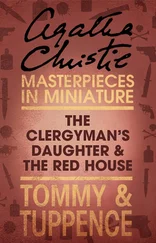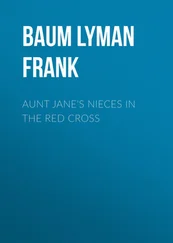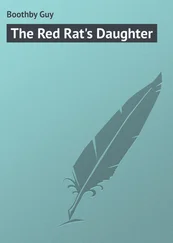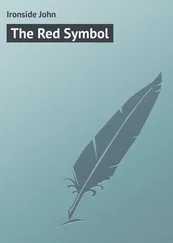Josef nodded. Taking a few moments to compose himself, he said in a flat clear voice, If Mother should wish to return now, there would be no punishment.
And so, through my son, the Mother State spoke, an invitation unofficially extended. And in my son’s mouth, for all the world to see, Mother became a word interchangeable with any other term of use, preowned and easily corrupted, a means of delineating avenues of barter and politics.
Us. Them.
That was the last of the communications. For the past two years, only silence. The letters I get now are from people not my children. This is what happens to you when you become Them . There is no going back.
But the Architect’s Widow writes me. Yes. And writes. She who does not know me calls me daughter.
27 January
Today I went into the city to lunch with Peter. I was the one who called; he sounded reluctant, but I insisted.
But first I stop by the legal office to say hello to Lucas Wardlow, Esquire, elegant silver fox of a man sitting behind his wide mahogany desk. He gets to his feet and kisses my cheeks and leads me to the leather couch at one end of his office for a little chat. Not as spry as once, perhaps, but still illustrious. An ex-president in habit and manner, used to crowds and audiences and making speeches now only when it suits him.
And how is my new home treating me? he wishes to know. Am I teaching? Working on a new book?
I tell him that my new home is treating me fine, thank you. He ought to come and visit, since he lives not far away.
Yes, yes, he answers vaguely, rubbing his callused golfer’s hands together.
I tell him that I turned down the offer to lecture in the Department of Slavic Languages and Literatures because I do not wish to be pigeonholed in the typical Russian émigré bunker.
You turned Princeton down? He cannot hide his dismay. Well, of course, I can certainly see…
As for writing another book, I interrupt him, before beginning such an endeavor I would of course demand correction of one issue that troubles me.
What issue?
How my lawyers allowed the copyright for my memoir to be put in my translator’s name instead of mine.
Ah … Lucas Wardlow, Esquire, reaches—energetically for a man his age—for an intercom console sitting like a nuclear trigger on his antique coffee table. Depressing a red button with his forefinger, he talks to the machine invisibly connected to his secretary. Margaret? Margaret?
Does he think I intend to let him escape so easily? Tell me, Mr. Wardlow, does this seem at all fair to you, in a country such as this? Who wrote my book—me or my translator?
I see… Margaret, do I have a lunch meeting? Lucas Wardlow, Esquire, calls hopefully toward the open door, abandoning the intercom altogether.
It is not Margaret who walks into desperate Wardlow’s office a moment later. In the months since I last saw him in person Peter has become, I am aware, a full partner at the firm—an extra inch of title that has given him a certain additional presence. The gray at his temples and sideburns makes him rather distingué, as do the tortoise reading glasses he puts on in order to study the menu at the Japanese restaurant on Lexington where he takes me to lunch.
Know what you’d like to eat? he asks politely, once we’re settled at a table by the window.
Martini.
Peter glances at me over his reading spectacles, our eyes meet, and it seems to me that he almost smiles.
Two vodka martinis, he tells the Japanese waiter, just now arriving. Very dry, straight up, twist.
Hai, domo!
And so I find, to my great relief, that we are not entirely broken.
—
Later, tongue loosened, I tell him that I am glad—no, very glad—to finally be sharing a meal again with my lawyer.
I’m glad too.
I can be difficult.
No, he demurs.
Yes.
Well—all right, maybe a little.
Sometimes, maybe it’s true, I can be frustrated about the book contracts you wrote for me. I know this. But, Peter, I count on you to understand these are just minor complaints. They don’t matter. I point them out because they are there and need correcting, but I don’t need them to live by. More money, more things—what would I do with them for myself? I have everything I need. My simple house, my brand-new, four-door green Dodge—you have not seen my beautiful car! I tell you, Peter, I am finally in love. Like a girl. Like a brand-new American girl with her brand-new pony. Only my pony has tires!
My lawyer laughs then, heartily and with relief, and we are good again. His firm pays our lunch bill and tips like a titan. Hai, domo! Peter escorts me out into the blue winter sunshine on the crisp sidewalked street. A lanky man wearing long mustaches and yellow-tinted sunglasses slouches by on the arm of his skinny blond girlfriend, her bare navel and hip bones showing out between flaps of shag-rug coat. Peter and I pause to stare at them. For they are beautiful in their ugliness and unbounded in their desire, and this is not their part of town. Nor mine.
Here is my new lover, I say boldly, as we approach my new car parked on Madison and Fifty-fifth Street. Is Mr. Dodge not handsome?
He’s the real McCoy, all right, Peter remarks—the bottled cowboy phrase so unlike him that after a moment we are both grinning.
Darn tooting? I say, teasing.
He shrugs, grin frozen, suddenly self-conscious. I reach for his hands to bring him back to life. He subtly resists.
Peter, I say.
He looks at me.
It is mood that matters most to me . The mood between us, not the words. Not papers or signatures or dollar signs. You understand? The mood and the feeling between us. This is what matters.
I feel the same way.
Good.
He leans down and kisses my cheeks, each one with emphasis, and hands me into my car. So much unsaid.
I am careful pulling out among the buses and taxicabs, well known to be aggressive lunatics. And then, too soon, Peter is just a small, shrinking figure in my looking glass.
February 17, 1970
Taliesin West
My Dearest Daughter,
It is increasingly strange to me that you are not here. I look up, expecting to embrace you, only to remember that you have not yet come. Once, I spoke your name out loud. At dinner the other evening Sid said something about Svetlana and I mistook it for you, not my own Svet, and my heart began to race not with grief, at last, but with excitement. This is good pain, and I welcome it.
Your loving Mother
March 2, 1970
Taliesin West
Dear Svetlana,
I wanted to write and join Mrs. W in saying how happy we all are here to know that you will soon be coming to visit. This is a unique place in America, as you no doubt have heard. It would be my pleasure while you are with us to take you on a tour of the historic buildings and grounds and to show you the surrounding area as well.
Yours, with my cordial regards, Sid Evans
8 March
I am in my attic looking at suitcases when I hear a car pull up in front of my house. Quiet late-winter afternoon. Two doors opening and closing in quick succession with that chilling echo that announces, wherever you are, We have come for you .
Three minutes later, Dick Thompson, the CIA man, limps into my kitchen holding a bouquet of red tulips. I am almost glad to see him after more than a year.
Wasn’t sure about the color, he apologizes for the flowers.
I told him yellow might be a safer choice, Peter says, entering after Dick.
Читать дальше












